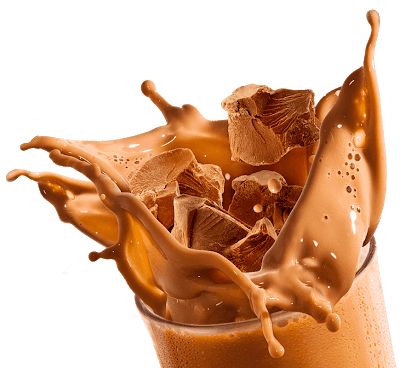I’ve always stressed on the fact that keeping a close watch on your diet is equally important as making sure you are doing your crunches and lifting those weights. Getting enough of protein is especially important because it gives you the required energy that you need to function in your everyday lives.
But I find that most people, who have never taken a step into a gym, tend to think that a protein-rich diet is only for body builders. Just like this one, there are tons of other myths about proteins. I think it’s about time that we look at the facts clearly, so we are not just mindlessly eating anything.
Debunking Protein Myths
If we really want to understand how protein should be included in our daily lives, we first need to look at what it really does for us. Simply put, you can’t function without proteins.
Proteins have amino acids in abundance, which are called ‘the building blocks of life’ because they help with the growth of skin, muscle, hair, nails, cells and organ tissues, while also regulating our metabolism and keeping a check on hormone production, antibodies and neurotransmitters. That’s quite a lot, isn’t it?
That’s why it is essential to eat good quality protein foods in the required quantities. Let’s now separate all the facts from fiction.
Myth 1: If You Are Not Going To The Gym, You Don’t Need To Focus on Your Protein Intake
Though gym junkies who are trying to build muscle and get stronger, place a special emphasis on taking protein shakes and including more protein-rich foods in their diet, it doesn’t mean that everyone else doesn’t need to bother with it.
Everyone doesn’t need protein supplements, but ensuring that your daily requirements are met in your diet is an absolute necessity. I have also heard excuses like “But I skipped some days at the gym. So I thought it’s okay to skip my proteins too.” No, it’s absolutely not okay.
You can’t just ignore proteins because unlike fats and carbohydrates, your body doesn’t have any mechanism to store it. So, it is really important to ensure that you are meeting your daily requirements for protein. Along with not being able to build enough muscle, your hormones, enzymes, hair and even skin will get affected if you don’t meet the required levels.
Myth 2: Everyone’s Body Requires the Same Amount of Proteins
When you are talking about proteins, you can’t go with the ‘one size fits all’ approach. Gender, body weight and age are important factors to be taken into consideration when looking at protein requirement.
For women in the age group 19-70, recommended daily protein intake is 46g (average weight) or 0.75g/kg, while for men it is 64g (average weight) or 0.84 g/kg. During pregnancy, the required amount shoots up to 60g (average weight) or 1.00g/kg, while during the lactation period, a minimum of 67g (average weight) or 1.10g/kg should be taken.
If you want to calculate the exact amount of protein that your body needs, just multiply your weight with the recommended protein/kg intake for your age group. So, for a 28-year old female who weighs 68 kgs, the recommended intake would be as follows: 68*0.75 = 51g of protein.
Myth 3: You Need To Be A Non-Vegetarian To Consume More Proteins
A non-vegetarian diet has a lot of proteins — fish, meat, and eggs are undoubtedly rich sources of protein, but that doesn’t mean vegetarians don’t have enough choices for themselves.
If you’re a vegetarian, you should consume milk, cheese, soy beans, tofu, paneer, lentil, yoghurt, chickpeas, kidney beans, green peas, whey, oats and brown rice to get enough proteins for your body.
Myth 4: It’s Okay To Replace Whole Foods With Protein Bars
Protein bars and powders are only supplements which are best consumed with a healthy diet of whole foods. You will see that athletes and body builders chug on protein shakes after an intense workout.
This is because their body has used up a lot of their proteins during the workout because working out is an intense physical activity. So, if they consume more protein immediately after it, they are supplying more amino acids that are needed for building muscles quickly and efficiently.
Myth 5: Cutting Back On Protein Will Help In Losing Weight
Contrary to popular belief, proteins can actually help you in your goals to lose weight. Foods rich in proteins will keep you feeling full for longer, and give your metabolism enough stamina so that it can burn off excess fat effectively. Your body needs eight essential amino acids to burn fat, all of which are provided by proteins only.
Myth 6: It’s Okay To Consume Proteins In Excess
In trying to build muscle endurance, a lot of people go on a rampage and start doping all the protein products that they see around them. But too much protein can actually harm your body.
Your body does not store protein, so what does it do when it is supplied with it in excess? It converts it into fat. It’s easier for it to convert protein to other macronutrients, but if there is too much of a surplus, it will get deposited as fat.
So whether you are a fitness freak aiming for a perfect body, or someone who needs to be pushed for exercising every day, know that proteins are essential for health. Be watchful of what you’re eating and how much nutrition you’re getting; your body will thank you for it!

